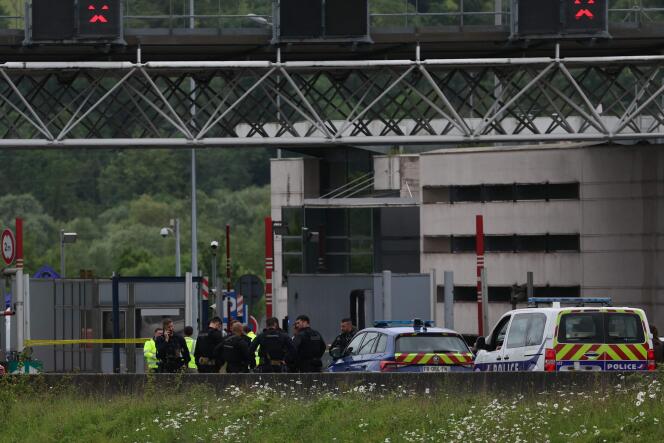


It was a footnote that a hurried reader might skim over without paying attention. Four and a half lines, nothing more, included in the report by an investigating committee of senators into drug trafficking. Here’s what it said, in full: “In a joint written response to the rapporteur’s questionnaire, the prison administration and the national prison intelligence service emphasize that the ‘risk of premeditated escape, linked to the network or organization to which [the prisoners] belong, as well as the financial means they have at their disposal which enable them to finance such a project and their escape’ is real and ‘increases with a high quantum of sentence’.”
This warning was published shortly before 10am on Tuesday, May 14. Two hours later, it sounded like a disturbing prophecy for the violent attack on the van transporting detainee Mohamed Amra, known as “The Fly,” at a toll booth in Normandy, freeing the drug trafficker at the cost of the lives of two prison officers.
In the immediate aftermath of the tragedy, while the manhunt was underway and everyone questioned the whereabouts of the gang on the run, another debate was launched about the vulnerability of the prison system to drug trafficking. While Amra’s spectacular escape highlighted the motivations and limitless resources of drug traffickers, other recent events have raised alarm bells about the fragility of the French prison system. Multiple drug seizures in prisons, shootings ordered from inside cells, corruption cases: Specialist magistrates have emphasized that a prison sentence does not represent a pause in the career of a drug trafficker, who can find other ways to pursue his activities from a distance.
Shifting dynamics
One of the main themes of the Sénat report was that prisons “no longer sever ties with the outside world.” A number of the 158 interviews conducted over a six-month period revealed the chronic weaknesses of the prison system in the face of organized crime. “Detention no longer puts an end to the activities of the network heads, who, despite one or 10 criminal detention warrants, continue to order assassinations or manage their deal points as if they were on the outside. Detention is understood as another business risk,” emphasized Isabelle Fort, deputy prosecutor at the Marseille Judicial Court, in charge of the specialized inter-regional jurisdiction.
For prison intelligence, understanding how drug trafficking dynamics are reshaped behind bars is a real headache. Questioned at a closed hearing, the head of the national prison intelligence service, Camille Hennetier, emphasized the “porosity” of gangs and “the reconstitution of shifting alliances within prisons.” This is a time when network leaders can recruit petty criminals, but also “forge alliances with other figures at the top of the spectrum to prepare for their own release from detention.”
You have 48.75% of this article left to read. The rest is for subscribers only.
This post was originally published on this site be sure to check out more of their content.






